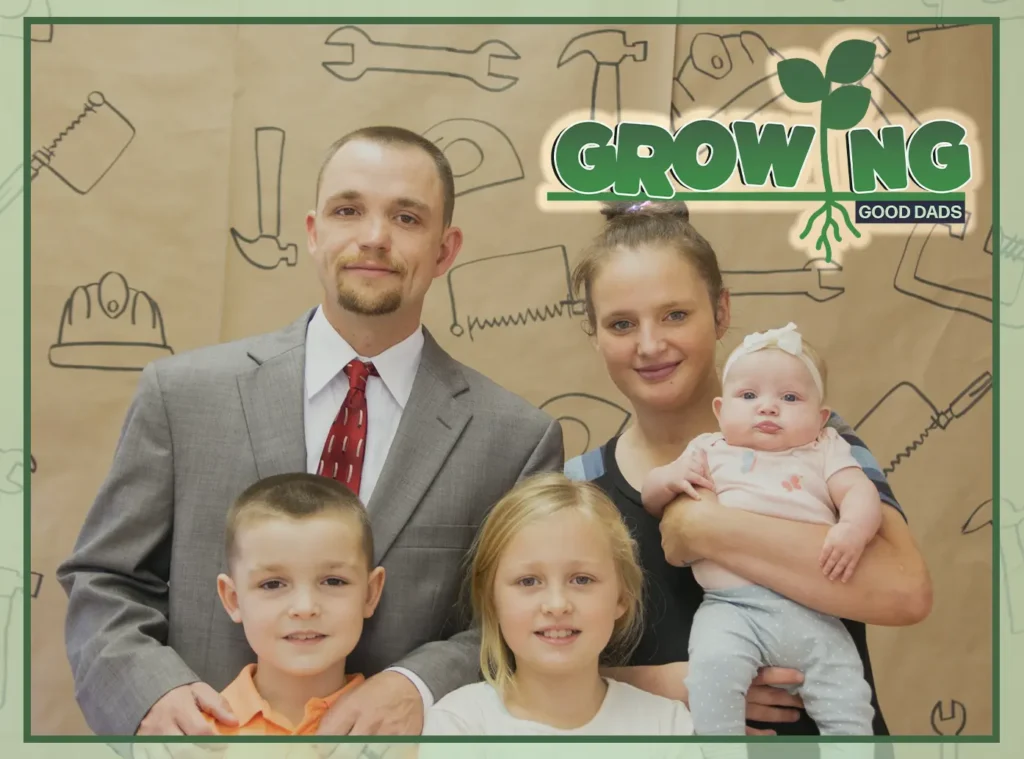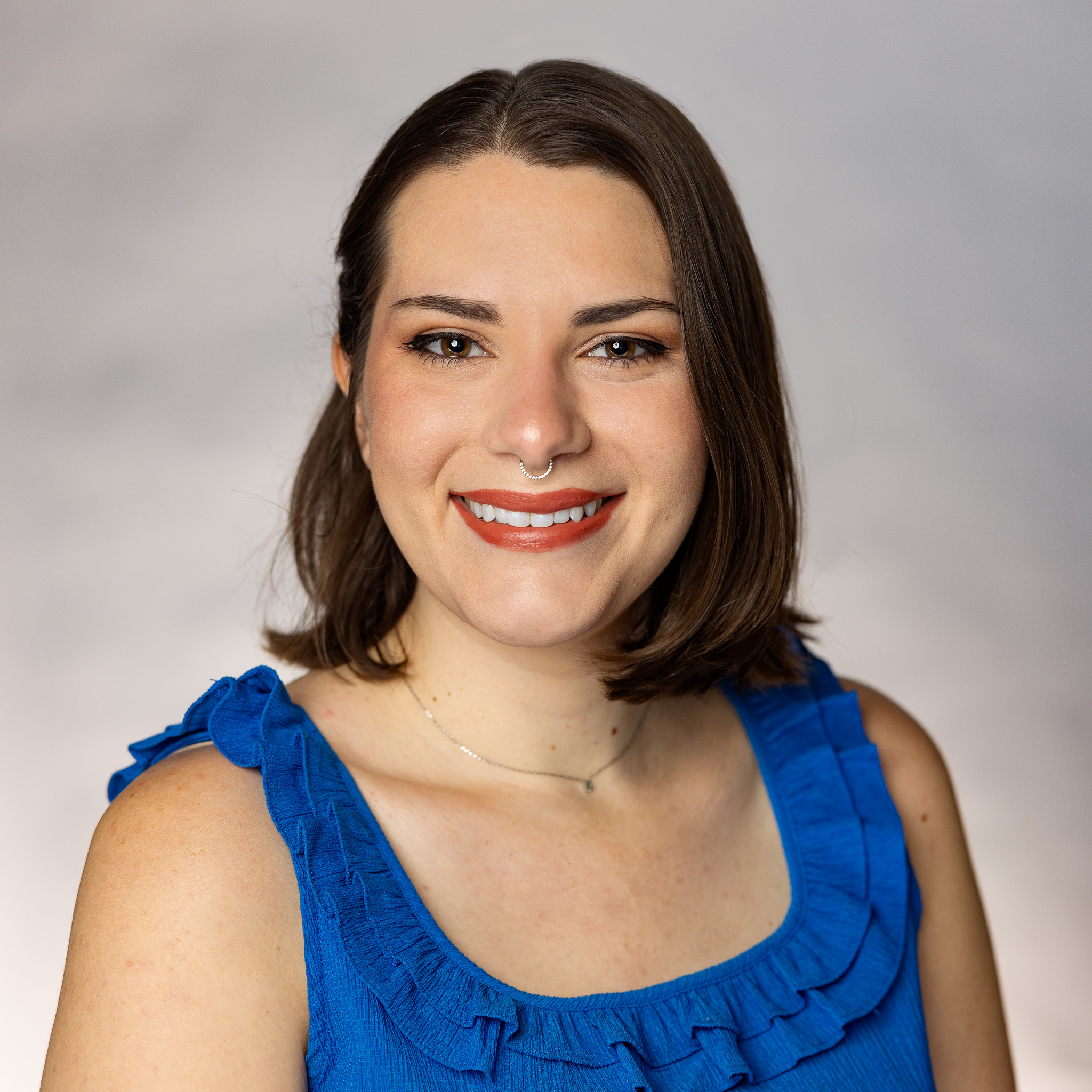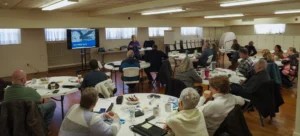Michael Gray, an Ozarks native and Good Dad, missed out on a big chunk of his kids’ childhoods.
The father of three (plus one stepson) was incarcerated for most of his 20s and wasn’t around for crucial childhood years for his two oldest—who were a year and half and 8 months old, respectively, when Michael first went to prison.
Because he was only out of prison for about four months at a time, Michael said he didn’t know much about being a dad.
Fast-forward to today, and life looks very different. Michael, 33, is employed full-time with the local Heavy Construction Laborer’s Union 663. He picked up part-time work on the side cleaning at Springfield Recovery Community Center. He’s raising four kids and supporting his wife, who recently had some health problems. He’s been clean and sober for more than four years.
But things don’t change overnight. Michael was kind enough to share his story with Good Dads—where he is now, how he got there and how he’s taking advantage of every opportunity to be a Good Dad.

New Pathways for Good Dads
Michael’s life started to change for the better in 2021, after his release. He lived at New Beginnings Sanctuary and enrolled in a relationships skills class as a part of Good Dads’ New Pathways program. He said he knew he needed to learn more about healthy personal relationships if he was to reintegrate into his kids’ lives after four separate incarcerations.
During this time, his two oldest were in foster care.
“I loved them and always have,” he said. “But I didn’t know what to do.”
Michael said he gained a lot of knowledge from the New Pathways program and called it “a great experience.”
After the relationships skills class was Good Dads’ fatherhood skills class. He especially contributed his positive class experiences to the talkative, welcoming cohort of dads who took the class with him, as well as the class facilitators, Joe and Amanda Fowler.
“They really helped me because I was struggling,” he said.
One of his biggest barriers was what he called his “ugly” situation with the Family Support Division. His ex-wife’s family were disparaging him despite his efforts for self-improvement, judging him only on his past actions. Michael tried to manage his own expectations. He knew he couldn’t force everything to just go back to normal.
His children were living with his ex at the time, and his relationship with the mother of his children was fraught.
“We didn’t see eye-to-eye on certain things,” Michael said.
But not all hope was lost: Michael said he went from “not knowing how to be a dad” to later enjoying unsupervised weekend visits with his kids, an amazing accomplishment.

And Baby Makes Six
Eventually, after lots of hard work and perseverance, he won custody of Adalee (10) and Berkley (8). He became stepdad to Braxton (8) when he married his wife, and together they had Brynlee, who recently turned 2.
Michael met his now-wife at New Beginnings, side-by-side in their recovery journey.
He described the whiplash he felt in this fast-paced time in his life. He and his wife went from monitored living at the Sanctuary to fresh graduates. Navigating living on your own is crazy enough, but two weeks later, he got custody of his kids. Two weeks after that, Brynlee was born. Boom, boom, boom.
Michael said it was challenging, needing to relearn how to live on his own, relearning how to be a parent and navigate living with his new wife. There were lots of hard times, but it’s all been worth it.
“We kept doing what we thought would be best for the baby,” Michael said. He knew his other kids didn’t necessarily have that luxury. He didn’t want Brynlee to have to endure what the others endured.
Another Challenge in the Mix
About a year ago, Michael’s wife got sick with lupus. One day, during a trip to a water park, her legs turned bright red: “the color of a Folgers can.”
They rushed to the hospital. Doctors ran tests and told Michael they’d never seen anything like it. An average adult’s blood platelet count is around 100,000–450,000, but hers were as low as 3,000.
While hospitalized, Michael remembers his wife was very calm. He was scared to death, but through it all she’s been a source of strength for Michael.
Since the incident over a year ago, the Grays have gone through months of testing, treatments and long wait lists for specialists. Michael says the family has had to adapt: “But we make it work.”

Being a Good Dad to Brynlee
Brynlee is a smart and funny toddler who picks up on new information quickly, speaks clearly and understands much more than the average 2-year-old.
“She blows me away on a daily basis,” Michael said with pride in his voice. “She’s highly intelligent. I hope it’s something I did!”
He said he knew his daughter would be smart but had no idea how mind-blowing she could be—describing how she seems to be very aware of her surroundings and able to follow multi-step instructions.
“At 8 months, she said ‘I love you’ all together,” Michael said, which he found truly remarkable because most youngsters don’t learn to string multiple words together until much later—although he admitted “love” sounded more like “wuv.”
At 11 months, she learned about fist-bumps. During trips to the grocery store, she’d ride around in the cart fist-bumping all the shoppers.

Michael’s Advice for Dads of 1–2-year-olds
- Be patient. You’re bound to have trying times and scary moments. There are going to be times where you don’t think you’re going to make it—because babies are expensive! Keep being a father; it’ll work itself out.
- Dads who screw up have the power to reconcile. No matter your situation or the challenges you encounter, it is possible to get back into your children’s lives. You can do it. You can turn things around. It’s not the end of the world. If I had given up, my kids would still be in a foster home.
- Don’t second-guess yourself as a dad. The moment you start second-guessing yourself, it affects everything.
About the Author
Diana Dudenhoeffer is the communications specialist at Good Dads. She works to maintain Good Dads’ online and print presence. Diana is a graduate of Missouri State University; she studied journalism, sustainability and documentary storytelling.





